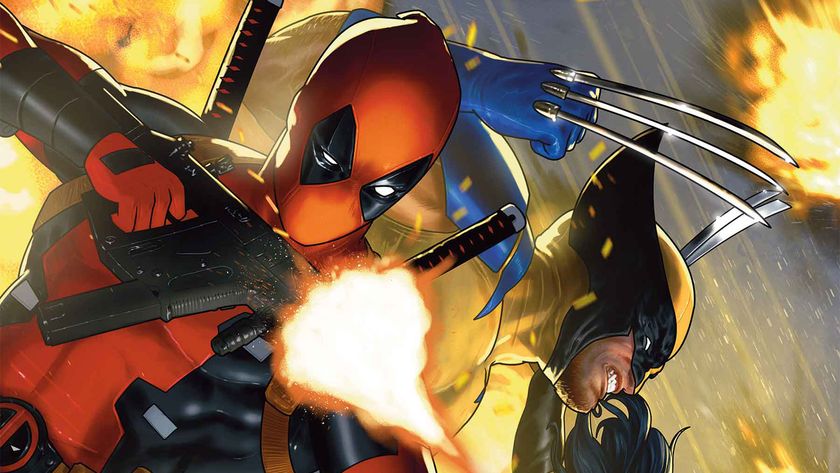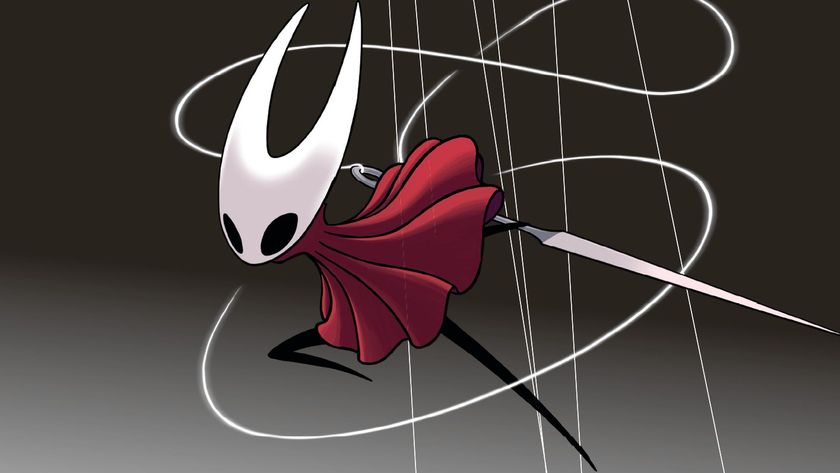Why you can trust 12DOVE
A musical about a barbarous barber who slits his patrons’ throats, grinds their carcasses into claret-worms and packages it all as the tastiest meat pies in Old London Town? Even Ed Wood would baulk at that one.
Not Tim Burton, though. A fan of Stephen Sondheim’s schlocking stage musical (it debuted on Broadway in 1979; Burton caught a London performance in the early ’80s), he rightly compares it to “an old horror movie” – the creeps and creaks of silent suspensers rinsed in organ music, the mournful poetry of Universal’s monsters and the lush dissonance of Bernard Herrmann’s orchestral assaults.
It’s therefore to be expected that Burton’s sixth collaboration with Johnny Depp – here wielding scissor hands to more violent effect – is a closer fit to Son Of Frankenstein than, say, Oklahoma!, the gothic architecture and cobbled streets atmospherically lensed in blacks and greys. It’s a murky, malevolent backdrop, all the better to offset the Grand Guignol flourishes: silver razors glinting in sodium moonlight; the waxen skin of Todd’s face threatening to split like paper as he delivers a flicker-lipped sneer; blood burbling down white shirt fronts and arching across grimy skylights (in one memorable kill, the red stuff even washes over the camera).
That there’s so much claret is a real shock. Sure, Burton’s London is stylised and granted, he uses blood like Vincente Minnelli might employ a red silk scarf to invigorate a showtune, but Sweeney Todd out-hoses anything offered by the Splat Pack this year. Burton, the King of Kook? King of Gloop, more like.
Whether audiences will lap this stuff up, however, is a moot point. As Burton himself has acknowledged, people who attend stage musicals don’t tend to view grot and those who (rightly) cherish Cannibal Holocaust aren’t always seen queuing round the block for Les Miserables. It won’t help, either, that Sondheim’s complex score, at once swooning and discordant, velvety and jagged, offers none of the toe-tapping, hip-thrusting razzmatazz of Chicago or the pop anthems of Moulin Rouge. It is instead the aural equivalent of the fractured angles and stained shadows that chop up The Cabinet Of Dr Caligari. Night music in a damaged brain, its distressing leitmotifs pile up faster than the on-screen body count.
John Logan’s script attempts to hook those who’ll be instantly put off by the wall-to-wall score (much of the dialogue is also sung, Umbrellas Of Cherbourg-style) by centring on the revenge plot that was first introduced in Christopher Bond’s 1973 version of the story. Absent from earlier incarnations of a text that first cut its blades in Thomas Beckett Prest’s The String Of Pearls: A Romance (1846), it sees Sweeney returning to London after 15 years in Australia, where he served time for a crime he didn’t commit. Back in the Big Smoke, he teams up with pie-maker Mrs Lovett (Helena Bonham Carter) and sets about wreaking a reeking revenge on nemesis Judge Turpin (played in the film by the curled lips of Alan Rickman).
Escalating towards a bleak conclusion that’s not so much telegraphed as tragically inevitable, the story takes in romance, suspense, melodrama, vengeance and madness along the way, working tirelessly to engage viewers who will be repelled by a) slaughter or b) show-tunes.
It works, to a point. For while the painterly camerawork, ornate production design and occasional tilt towards jazz-hands performance (Sacha Baron Cohen as Italian rival barber Signor Adolfo Pirelli) conspire to keep the action at a distance, Depp and Bonham Carter present their beating hearts on gore-streaked sleeves. It’s Johnny, of course, who’ll snag the headlines and accolades, his black-eyed Sweeney retaining audience sympathy even while he loses his own soul, frenziedly slashing jugulars. But it’s Bonham Carter’s tenderness that’s the balm to the movie’s pustulating sores – her love for Sweeney is barely noticed let alone requited, adding an ache of poignancy to the screaming agony of carved necks.
And so to the multi-million dollar question: can Depp sing? The answer, sickeningly enough, is yes; his vocals lacking finesse but loaded with emotion. That most of this emotion is the unhinged rage of a serial killer with a penchant for bursting into song is the literally sticky sticking point, sure to raise bile of every description.
It's gross but will it gross? Burton and Depp's cannibal musical is an especially acquired taste - - Oliver! reimagined by Eli Roth. Brave, brutal...ballads?
The Total Film team are made up of the finest minds in all of film journalism. They are: Editor Jane Crowther, Deputy Editor Matt Maytum, Reviews Ed Matthew Leyland, News Editor Jordan Farley, and Online Editor Emily Murray. Expect exclusive news, reviews, features, and more from the team behind the smarter movie magazine.

The Switch 2 Direct broke just in time for me to nearly miss a revival of a 26-year-old Konami cult classic I obsessed over in Nintendo Power

Marvel cancels Deadpool to relaunch it as daddy-daughter team-up title Wolverines and Deadpools

As Hollow Knight Silksong makes a blink-and-you'll-miss-it reemergence for Nintendo Switch 2, Xbox reminds everyone the Metroidvania is still day one on Game Pass










